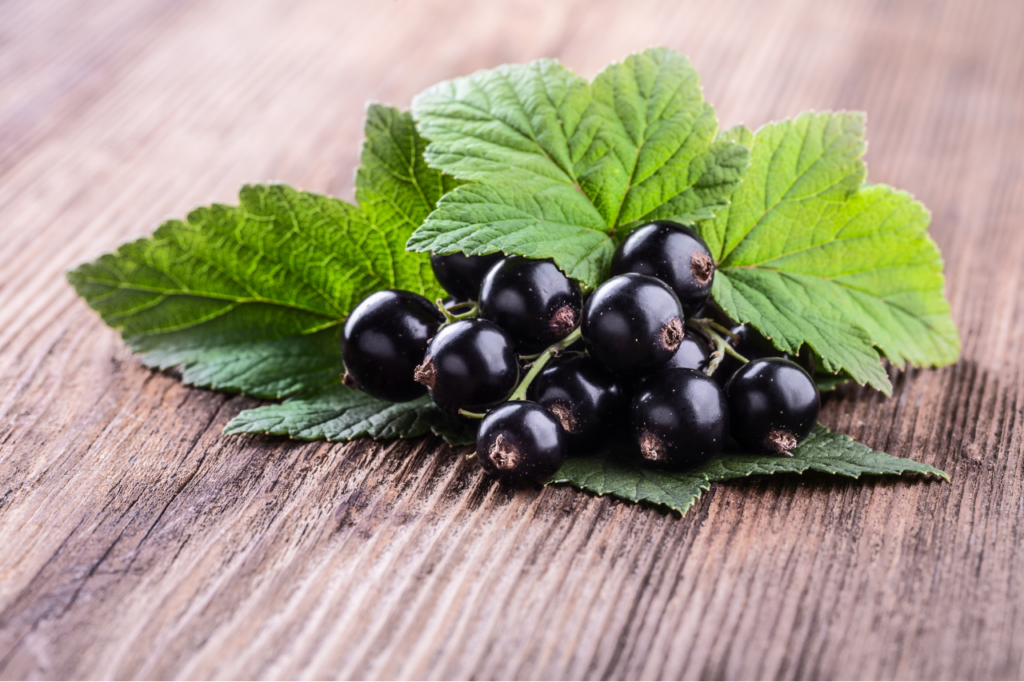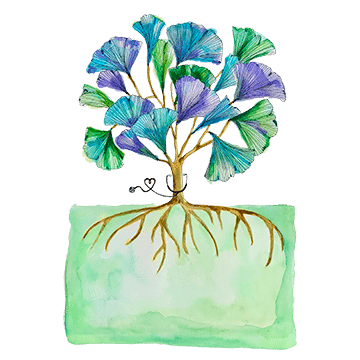
Support Adrenal Health with Black Currant
All berries are delicious and good for you, but black currant (Ribes nigrum) stands out as particularly good because of its adaptogenic properties; its nutrients actually adapt to the needs of your body, supporting your immune system and adrenal gland health, protecting against inflammation and oxidative stress on the cells.
Black currants are high in vitamin C (about 100 grams per serving). Unlike with citrus fruits, the vitamin C in black currant is stable and doesn’t degrade quickly. Vitamin C supports the immune system and works as an antioxidant, protecting our cells from damage created by physical and environmental stressors (toxins, emotional stress, poor diet).
Black currants also contain a fatty acid called Gamma-linoleic acid (GLA), which is not found in many other foods. In the body, GLA acts to reduce inflammation. It has been used in managing conditions such as arthritis, autoimmune disorders, and other health conditions where inflammation plays a significant role.
There are many ways to enjoy black currants. Look for freeze dried or dried berries in the bulk section or the specialty food section of a grocery store. Include black currant in a dried fruit medley of other vitamin C rich foods such as dried apricot, raisins, pineapple, mango, apple, and strawberries. Add in banana chips to balance out the complement of potassium and other minerals from fruits.
You might also like black currant juice, syrup, or jelly. You can prepare your own or buy pre-made, with no sugar added. You can always sweeten juice or syrup to your liking with monk fruit or local honey. Even better, relax with a cup of black currant tea at the end of a busy day.
Resources
NatureandGarden.com “Black currant health benefits and therapeutic value.” Retrieved 11 Jan 2021
Black Currant. Natural Medicines Comprehensive Database. Stockton, CA: Therapeutic Research Faculty. [Updated July 31, 2012; Reviewed Feb. 10, 2013; Retrieved Jan 10, 2021].
Basic report: currants, European black, raw. (2016, May) Retrieved 11 Jan 2021
Bonarska-Kujawa, D., Cyboran, S. Zylka, R., Oszmianski, J. & Klezcynska, H. (2014). “Biological activity of blackcurrant extracts (Ribes nigrum L.) in relation to erythrocyte membranes.” BioMed Research International. Retrieved 11 Jan 2021
Duke, J. A. Handbook of Medicinal Herbs, Second Edition. (2002, June).

